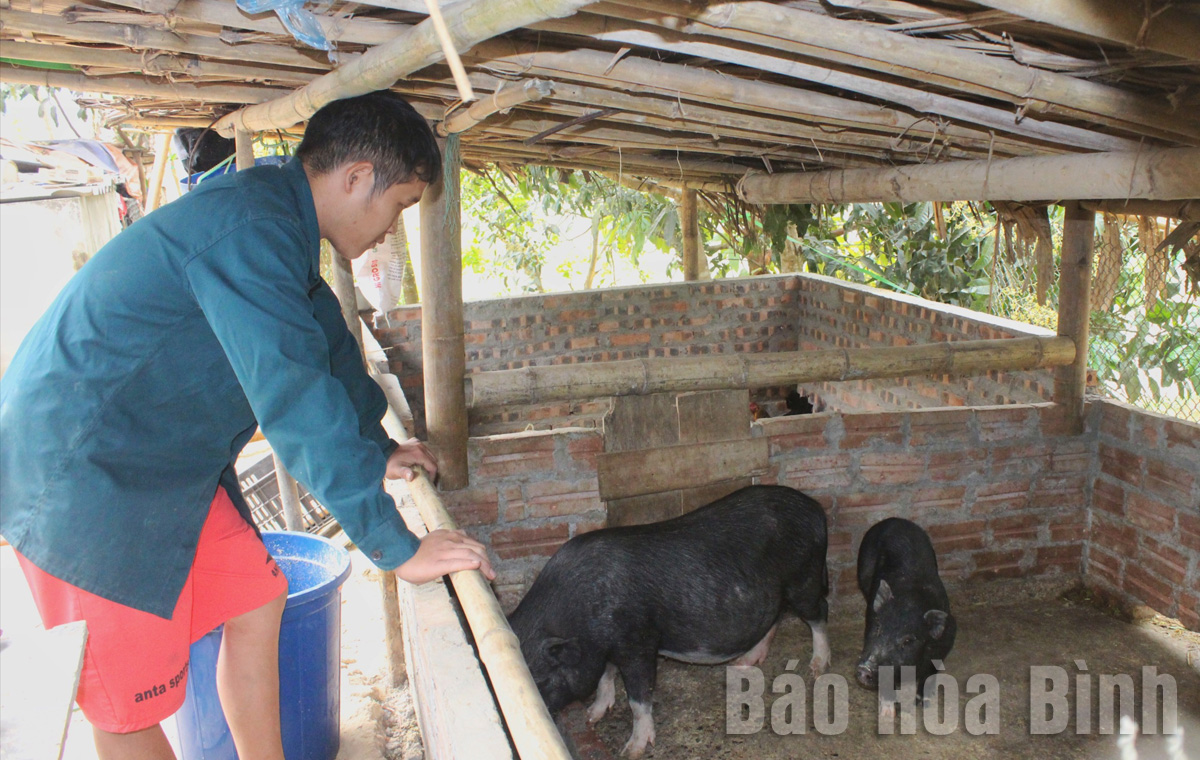



The people in So hamlet, Trung Thanh commune, Da Bac district raise indigenous pigs bringing high economic efficiency.
In recent years, the consumers’ demand has increased. Many people choose indigenous pork as their daily food. In order to have high-quality pork and be assured of its origin, some households have chosen to buy whole pigs to share at the weekend. Indigenous pigs are rarely raised on large farms, but mainly in small households, or raised with other pig breeds.
Over the years, the indigenous pig breed has been crossbreed, no longer a purebred breed. The meat quality is uneven. Therefore, it is very necessary to build a production chain associated with the consumption of indigenous pig products. Breeders have access to modern livestock production processes, reducing costs. Indigenous pig breeds are genetically conserved. Consumers get the best product.
As a bridge unit between processing and consumption enterprises and local pig farming cooperatives, the Provincial Cooperative Union organizes a chain of production links associated with product consumption. In the immediate future, there are 6 cooperatives with more than 20 local pig raising members registered to participate in the chain. This is the first step in the process of building and bringing the products to consumers.
Mr. Ninh Van Nghi, the Director of CooPlus Co., Ltd (Hanoi) says: For several years now, our unit has implemented a chain of consuming and processing black pig products from Muong. area The product is very popular with the consumers in Hanoi. This is an important factor to expand the chain, expand livestock production and let more people the access to the product. However, to build a successful chain requires many units, enterprises and cooperatives with the same idea to participate. One unit cannot do all the work. It is necessary to develop a thorough process, from selecting breeds, sources of food, care, veterinary medicine to preliminary processing, processing... they must be closed and strictly followed. If one stage is defective, the product is damaged and it loses the brand name.
Sharing the difficulties in the production process, a representative of the Muong Pa black pig farming cooperative (Mai Chau) says: Currently, the cooperative raises from 800 to 1,200 pigs. The biggest difficulty is that there is no standard local pig breed supplier. The cooperative makes the use of pig breeds from the households, the quality of breeds is not uniform, so it is difficult to sell.
Sharing the same opinion with the representative of Muong Pa black pig farming cooperative, the representatives of Tam Cuong Tan Minh multi-industry cooperative (Da Bac), Tan Son agricultural service cooperative (Tan Lac), Yen Hoa clean food cooperative (Da Bac). ) say that, in addition to the difficulty of standardizing breeds, when joining the chain, the cooperatives want to support veterinary work, build a product processing zone and be invested in infrastructure.
It can be said that building a chain of production and product consumption is an inevitable step to build a local pig brand. Building a chain enhances the transparency and ensures the product quality, and helps promote the sustainable development of the pig industry by establishing processes for production, processing, transportation, storage and distribute products, as well as set food safety and quality standards. In addition, by providing the detailed information about the origin, production process and product quality, customers can trust to choose local pork products with more peace of mind. In addition to the above benefits, building the link also helps create a healthy competitive environment for the local pig producers and consumers.